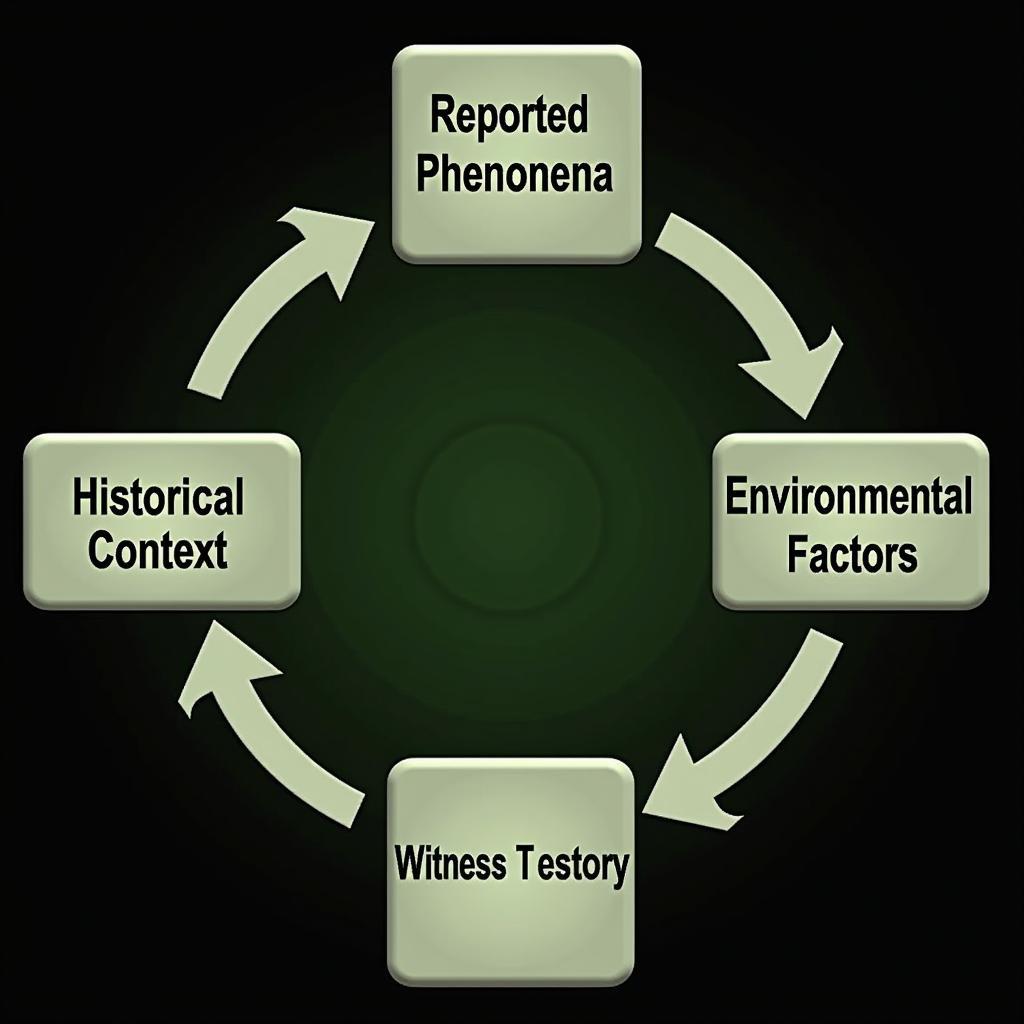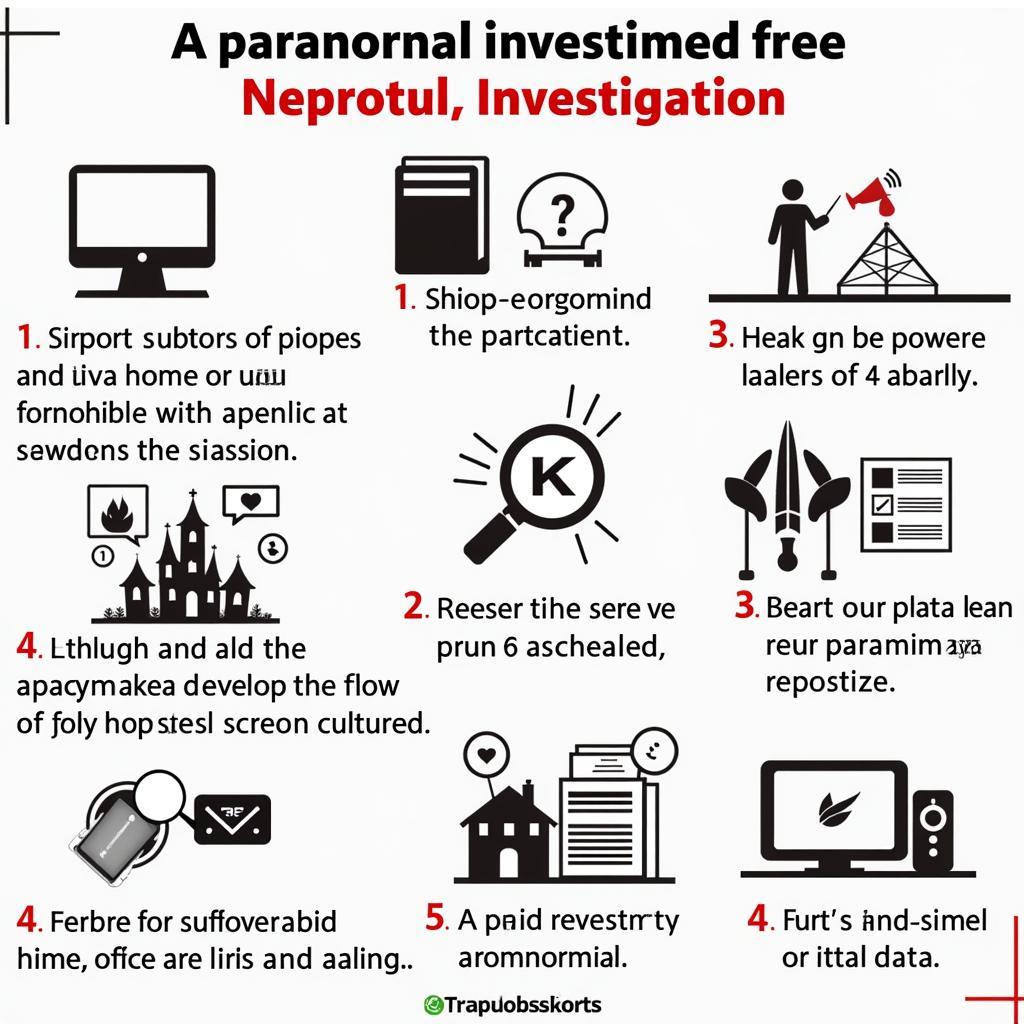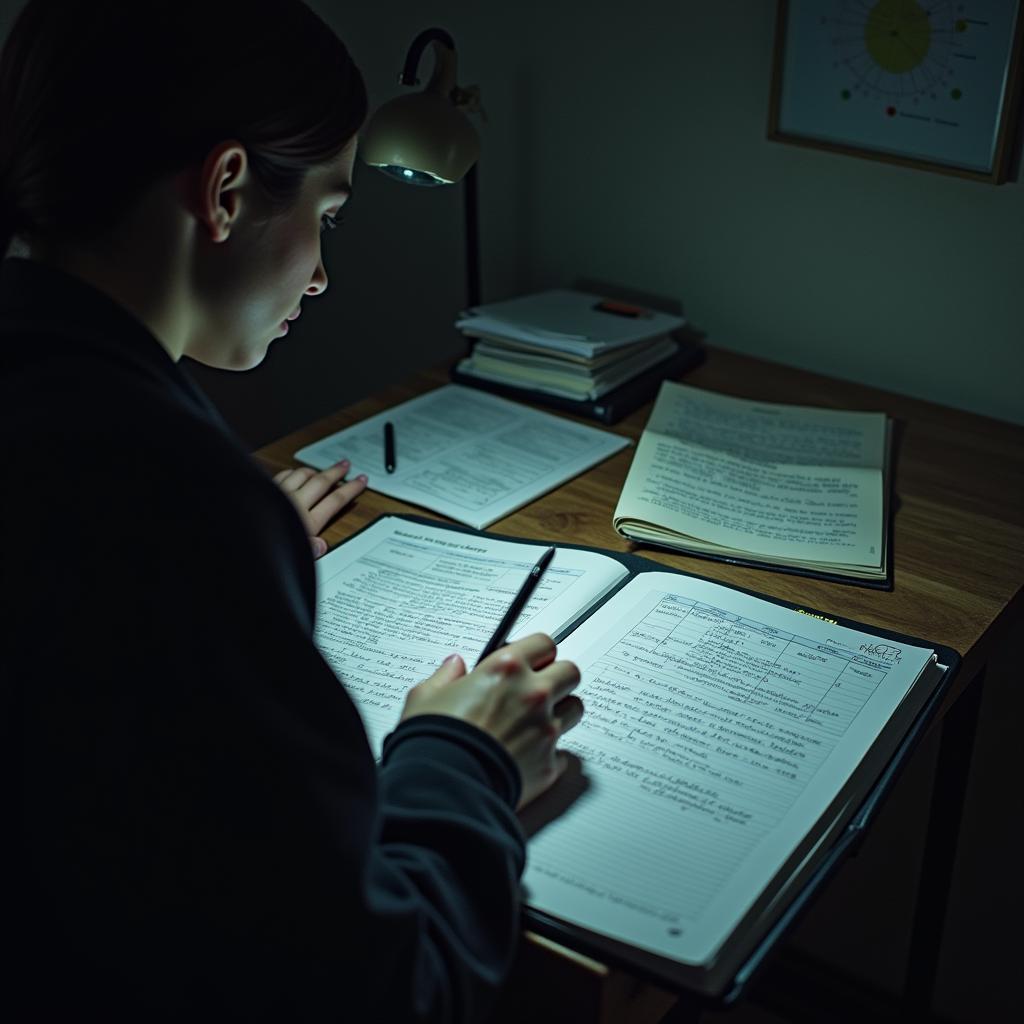Conceptualize Research is the crucial first step in any investigation, especially in the realm of the paranormal. It’s about forming a clear and structured plan of action, transforming a vague curiosity into a testable hypothesis. This process involves identifying the research question, defining key concepts, and establishing a methodology for gathering and interpreting data. Whether you’re investigating a haunted house or a mysterious creature, a well-conceptualized research project is essential for obtaining meaningful results.
What does it mean to conceptualize research, especially when delving into the unknown? It’s more than just brainstorming ideas. It requires a structured approach to asking questions, defining your research scope, and outlining the methods you’ll use to find answers. This applies to any research, from scientific studies to paranormal investigations. A solid framework ensures your efforts are focused and productive, leading to more credible findings. For paranormal researchers, this means moving beyond anecdotal evidence and embracing a more systematic approach to exploring the unexplained.
Defining Your Paranormal Research Project
The initial phase of conceptualizing research involves clearly defining your research problem. What exactly are you trying to investigate? Are you exploring claims of a specific haunting, searching for evidence of cryptids, or attempting to understand a particular psychic phenomenon? A well-defined research problem acts as a compass, guiding your investigation and preventing you from straying into irrelevant territories. For instance, if your research question revolves around a reported haunting, you would focus on gathering evidence related to that specific location and its history, rather than exploring general theories about ghosts.
After defining your research problem, you must develop a conceptual framework. This involves identifying the key concepts related to your research and establishing the relationships between them. In paranormal research, this might include concepts like electromagnetic fields, psychic abilities, or historical context. A robust conceptual framework provides a theoretical foundation for your investigation and helps you interpret your findings.
 Conceptual Framework for Paranormal Research
Conceptual Framework for Paranormal Research
Methodologies in Paranormal Research
Choosing the right research methodology is crucial for gathering reliable data. Will you conduct interviews, use electronic voice phenomena (EVP) recorders, or employ other specialized equipment? Each method has its strengths and limitations, and selecting the most appropriate ones will depend on the nature of your research question. For example, investigating a poltergeist might involve using motion sensors and cameras, while exploring psychic abilities might require conducting controlled experiments.
It’s also essential to address potential biases and ensure objectivity. In the often subjective world of paranormal research, maintaining a critical and unbiased approach is paramount. Documenting everything meticulously and being open to alternative explanations are key to conducting credible research.
How Do You Structure a Paranormal Investigation?
Structuring a paranormal investigation requires a methodical approach. Start by outlining the specific steps you’ll take, from gathering initial information to analyzing your findings. This structured approach will help you stay organized and ensure you don’t overlook any crucial details.
Planning Your Research Design
Your research design is the blueprint for your investigation. It details the specific methods you’ll use, the data you’ll collect, and how you’ll analyze it. A well-designed research plan increases the likelihood of obtaining meaningful and reliable results.
 Steps in a Paranormal Investigation
Steps in a Paranormal Investigation
which researchers suggested that language determines thought
Data Collection and Analysis in Paranormal Investigations
Collecting and analyzing data in paranormal research requires a discerning eye. Be prepared to sift through a lot of information, separating genuine anomalies from environmental factors or equipment malfunctions. Critical thinking and objective analysis are essential skills for any paranormal investigator.
research associate research scientist
Dr. Evelyn Reed, a prominent parapsychologist, emphasizes this point: “In paranormal research, it’s crucial to approach data with a healthy dose of skepticism. Not every unexplained occurrence is evidence of the paranormal.”
Professor Arthur Vance, a leading researcher in anomalous phenomena, adds, “The key to successful paranormal research lies in meticulous documentation and rigorous analysis. We must strive for objectivity, even when dealing with subjective experiences.”
Conclusion
Conceptualize research is the cornerstone of any successful investigation, especially in the fascinating and challenging field of the paranormal. By defining your research problem, developing a conceptual framework, choosing appropriate methodologies, and adhering to a structured approach, you can significantly enhance the credibility and value of your findings. This systematic approach, combined with a critical and unbiased mindset, will empower you to navigate the mysteries of the unknown with greater clarity and insight. Remember, conceptualizing research is not just about finding answers; it’s about asking the right questions.
divine punishment research request
 Conceptualizing Paranormal Research: Conclusion
Conceptualizing Paranormal Research: Conclusion
FAQ
- What is the first step in conceptualizing paranormal research?
- Why is a conceptual framework important in paranormal investigations?
- What are some common methodologies used in paranormal research?
- How can I ensure objectivity in my paranormal investigations?
- What is the importance of data analysis in paranormal research?
- What are some common pitfalls to avoid in paranormal research?
- Where can I find more resources on conducting Paranormal Research?
For assistance, contact us at Phone Number: 0904826292, Email: research@gmail.com, or visit us at No. 31, Alley 142/7, P. Phú Viên, Bồ Đề, Long Biên, Hà Nội, Việt Nam. We have a 24/7 customer service team.